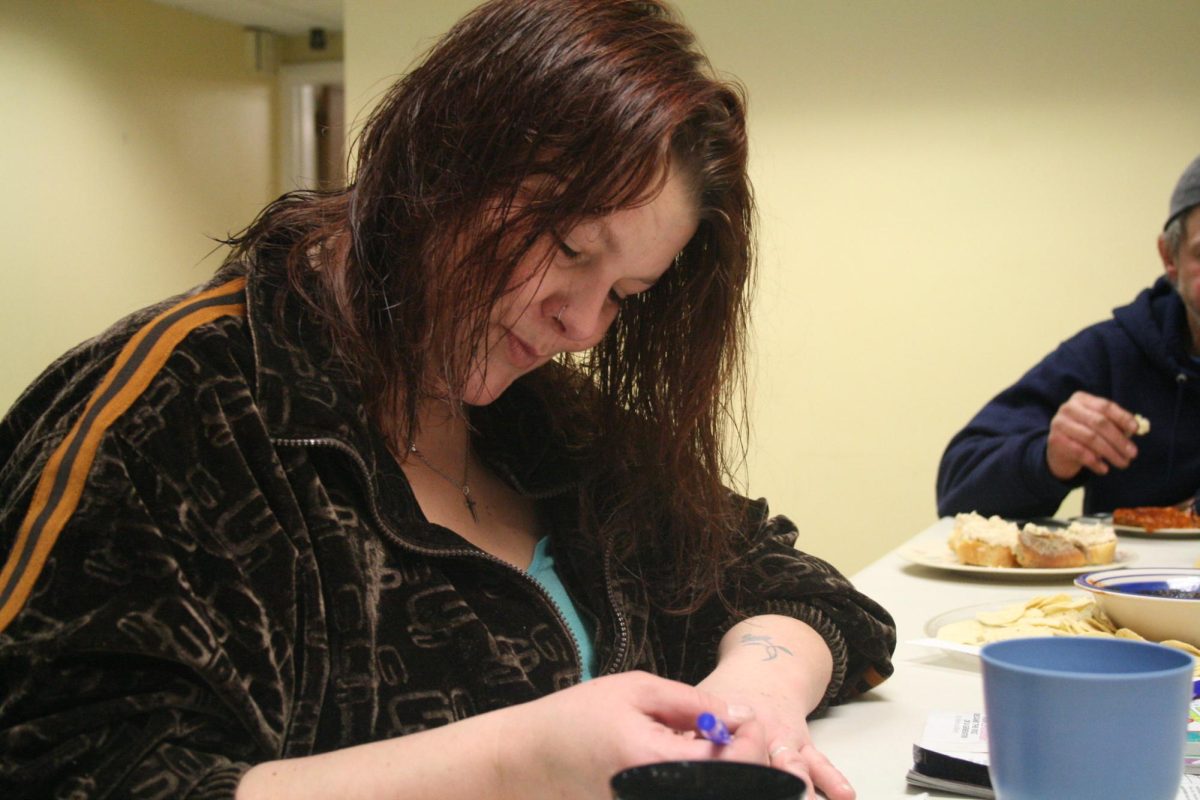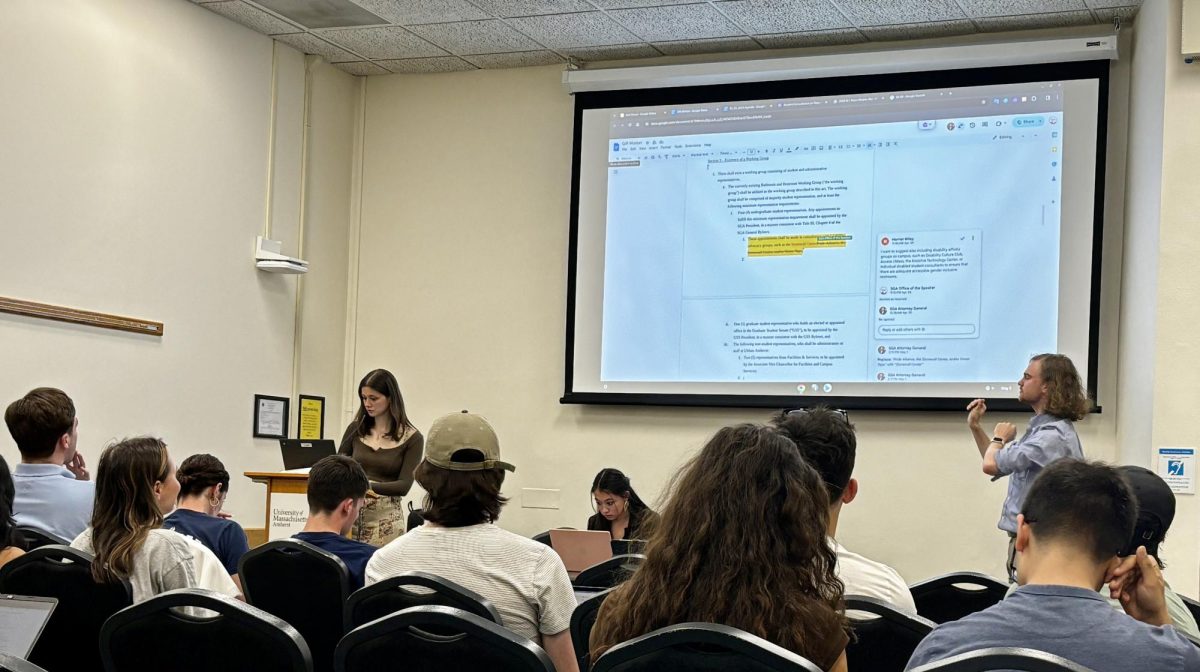In a filled Sage Hall auditorium at Smith College last night, nuclear activist Dr. Helen Caldicott gave her talk entitled “The New Nuclear Danger,” while promoting her new book with the same title.
A pediatrician by profession, Caldicott became a leading spokesperson on the nuclear-freeze movement, which included speaking with heads of state such as Ronald Reagan and working in activism from the days of the Cold War, up through today.
Caldicott’s talk largely expressed her concerns about the Pentagon, media, and the Bush Administration, and how she feels they relate to nuclear danger on a world scale. She also touched on other topics of concern to her.
“What I am saying tonight will determine your future and whether or not you live or die,” Caldicott said.
In her concern about the Pentagon’s role, Caldicott accused the Pentagon of downplaying the dangers of nuclear war. According to Caldicott, even the terminology that is commonly used in the Pentagon can play a very crucial factor in the decision to resorting to nuclear war.
According to Caldicott, the first bomb, named “Trinity,” was also nicknamed “Oppenheimer’s Baby,” and the code used for its successful detonation was sent to Washington in the form of a telegram reading, “It’s a boy.”
To Caldicott, the Pentagon’s use of this kind of terminology, which includes phrases like “soft target” and “collateral damage,” make light of human casualties, while words like “skin” and “baby” add human qualities to a nuclear weapon.
“The minds of these men running this country should be psychoanalyzed,” Caldicott said. “And, if necessary, they should be removed on an emergency basis.”
While discussing the role of the Pentagon, Caldicott also expressed concern about the role of the media in situations of war. According to Caldicott, media outlets corrupted by corporate and government influence also have a role in downplaying the nuclear danger, while actively hiding vital information from Americans.
As a reference for her argument, she looked back to a 1995 incident in which former Russian president Boris Yeltsin, had contemplated a nuclear counter-strike against the U.S., due to immediate panic from an incoming test-missile.
Caldicott said that the U.S. was only seconds away from nuclear war, but the incident was not given any priority, considering that The New York Times had reported the incident in the back pages, next to the obituaries.
“The New York Times and the media are determining the fate of Earth,” Caldicott said. “Our deaths are irrelevant to the Pentagon.”
Later in the evening, Caldicott touched on her fear of escalating danger, brought on by what she believes to be an excessive nuclear capability of the U.S. She said that the excessive nuclear capability of the U.S. could theoretically destroy the world 77 times over.
Caldicott argued that this kind of capability is a bad influence on other nations like Russia, China, and North Korea, who are still trying to measure up to U.S. capability.
“Everyone wants to copy America,” she said.
Another topic that was brought up was the Bush Administration. According to Caldicott, Lockheed Martin not only holds sizeable contacts with the U.S. Government, including projects for space militarization, but includes people like Lynne Cheney, Vice President Dick Cheney’s wife, on the board of directors.
Another concern of hers is how much influence Lockheed Martin holds over the media. According to Caldicott, Lockheed Martin supports The Heritage Foundation, a conservative think tank that had worked in the past with The Wall Street Journal, The Washington Times and other media outlets.
“I’m reminded of Germany,” she said, “It’s a very, very dark time.”
Her last topic for the evening was about the war in Iraq, which she also accuses the media of downplaying. Caldicott argued that the U.S. had already been engaging in a form of nuclear war when, in Iraq, shells of Uranium-238, were used in the fighting.
According to Caldicott, the media and the Pentagon had covered up the extent of the damage in Iraq, which included the poisoning of civilians in the form of cancer and birth defects.
“My colleagues stand at the front of their beds, weeping, because, from American sanctions, they have no drugs to help treat the children with leukemia,” said Caldicott, “But Americans don’t know that.”
Before ending her talk, Caldicott also made the same claim about Afghanistan, where she said that 1000 tons of Uranium-238 was used in the wars.
“That’s called ‘evil,'” Caldicott said.






